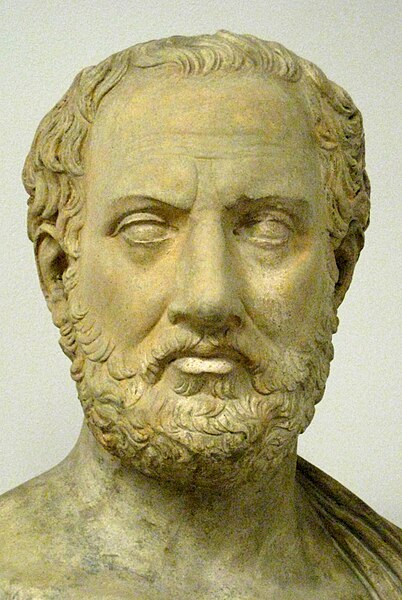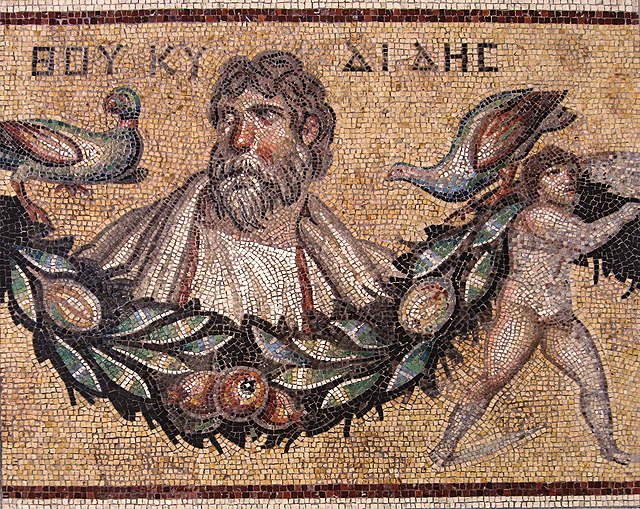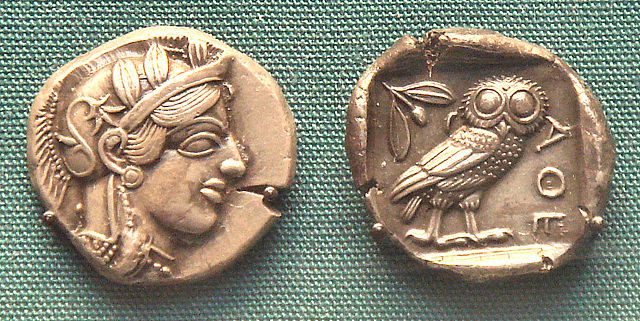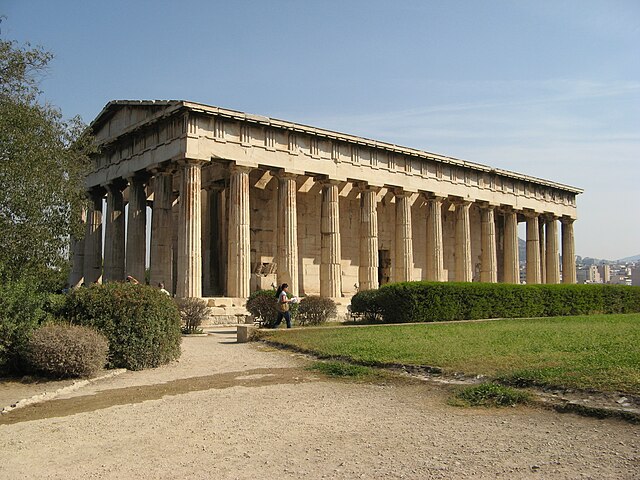Thucydides was an Athenian historian and general. His History of the Peloponnesian War recounts the fifth-century BC war between Sparta and Athens until the year 411 BC. Thucydides has been dubbed the father of "scientific history" by those who accept his claims to have applied strict standards of impartiality and evidence-gathering and analysis of cause and effect, without reference to intervention by the gods, as outlined in his introduction to his work.
Plaster cast bust of Thucydides (in the Pushkin Museum) from a Roman copy (located at Holkham Hall) of an early fourth-century BC Greek original
The ruins of Amphipolis as envisaged by E. Cousinéry in 1831: the bridge over the Strymon, the city fortifications, and the acropolis
Thucydides Mosaic from Jerash, Jordan, Roman, 3rd century AD at the Pergamon Museum in Berlin
Bust of Pericles
The city of Athens during the classical period of ancient Greece was the major urban centre of the notable polis (city-state) of the same name, located in Attica, Greece, leading the Delian League in the Peloponnesian War against Sparta and the Peloponnesian League. Athenian democracy was established in 508 BC under Cleisthenes following the tyranny of Isagoras. This system remained remarkably stable, and with a few brief interruptions remained in place for 180 years, until 322 BC. The peak of Athenian hegemony was achieved in the 440s to 430s BC, known as the Age of Pericles.
Early Athenian coin, 5th century BC. British Museum.
The modern National Academy in Athens, with Apollo and Athena on their columns, and Socrates and Plato seated in front.
The Acropolis imagined in an 1846 painting by Leo von Klenze
The Temple of Hephaestus in modern-day Athens








